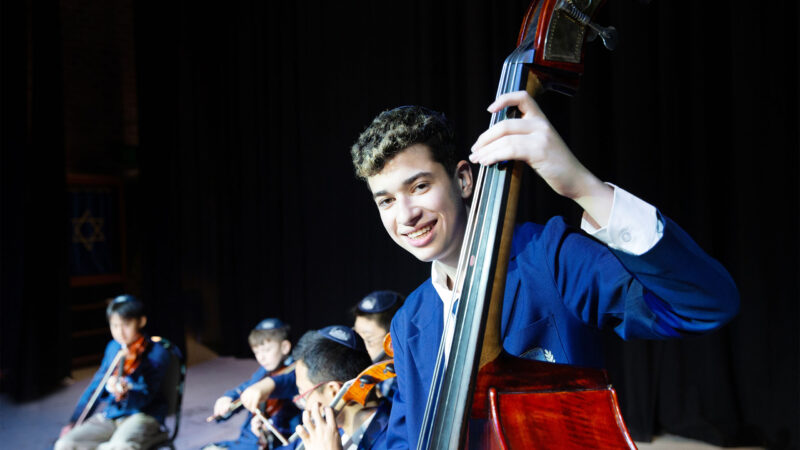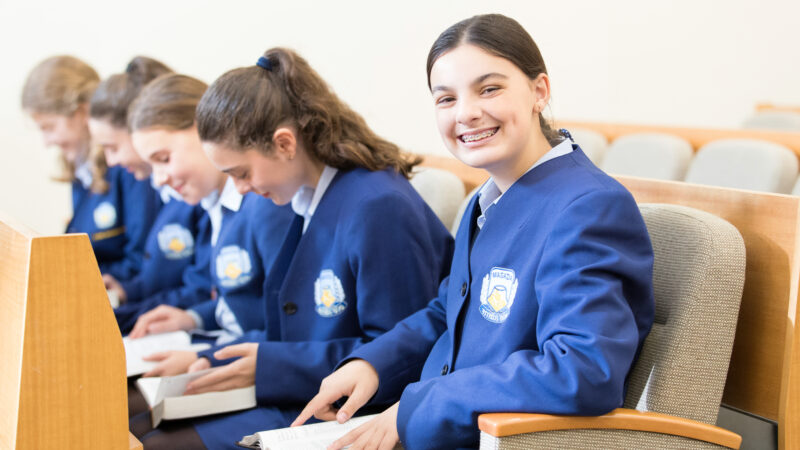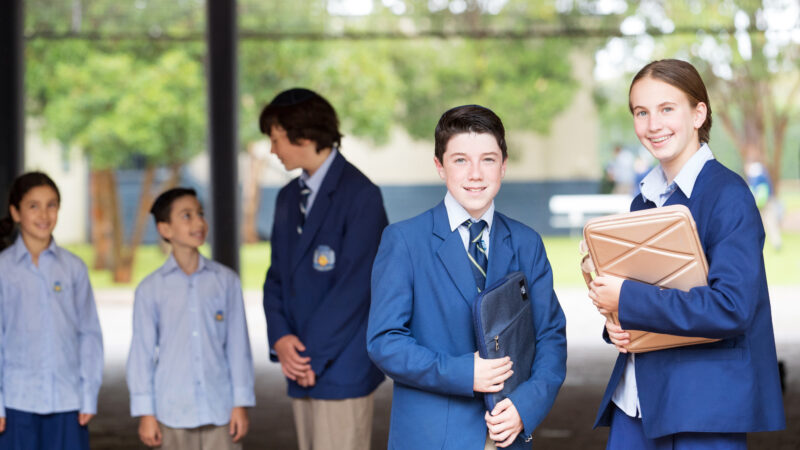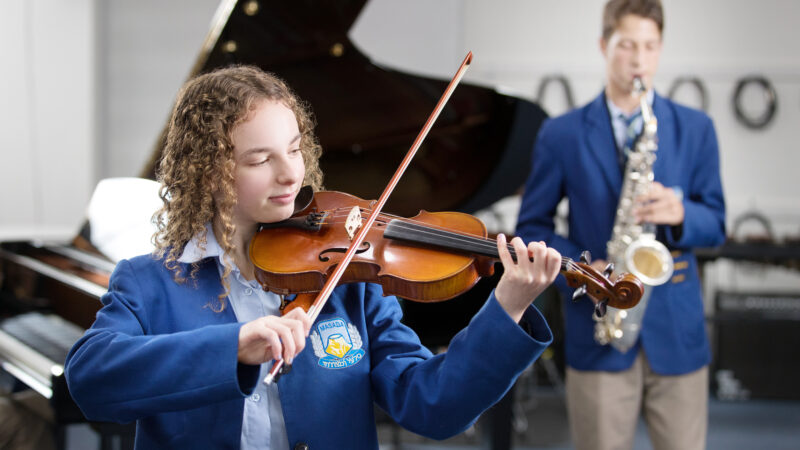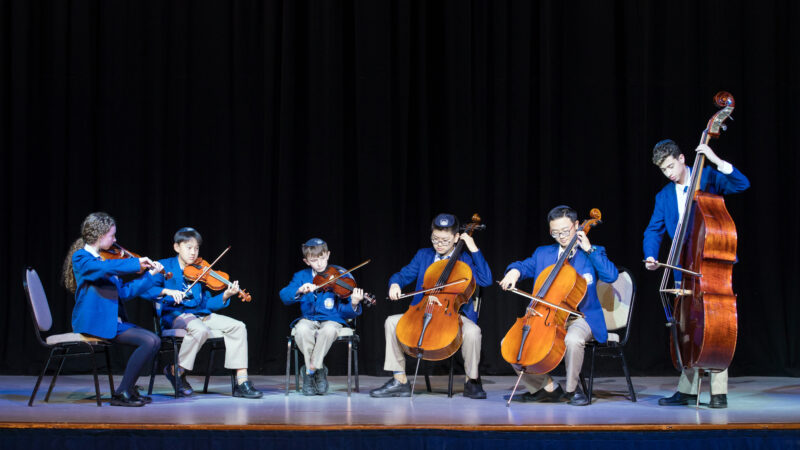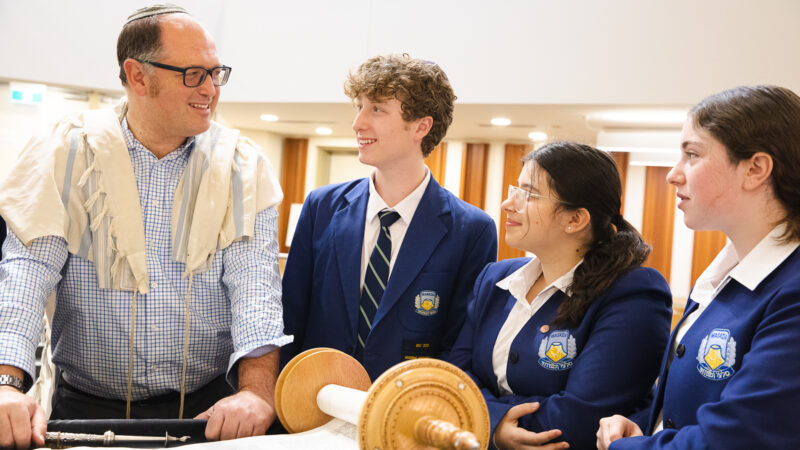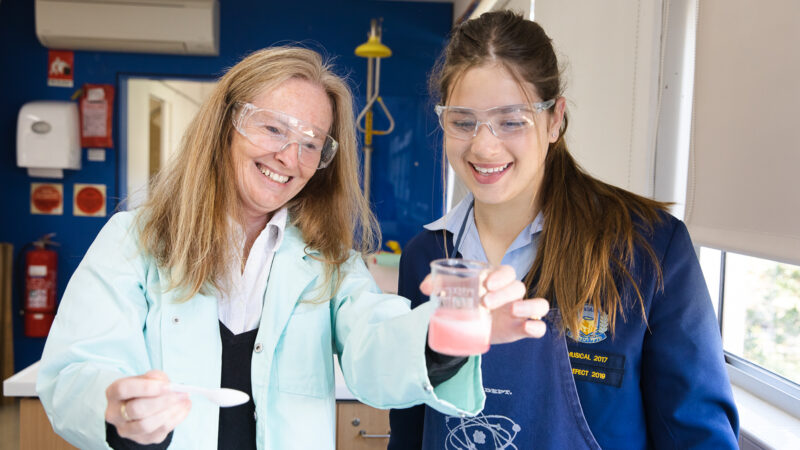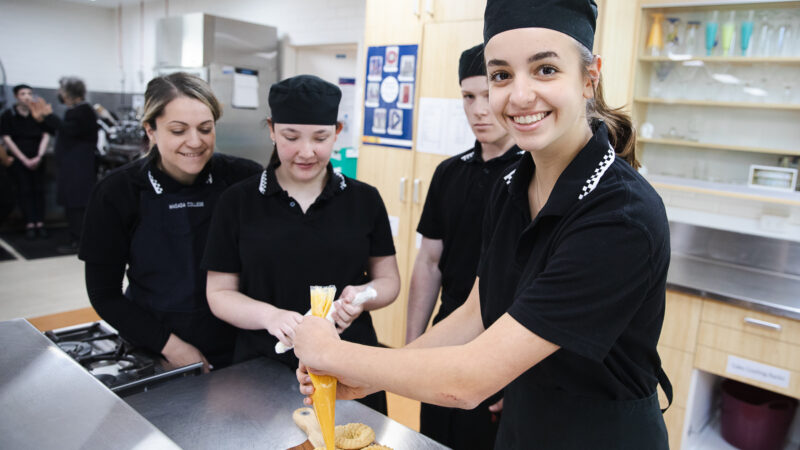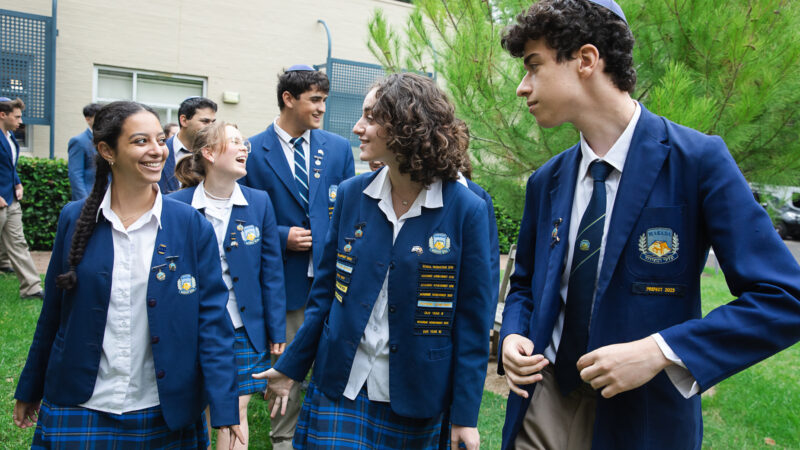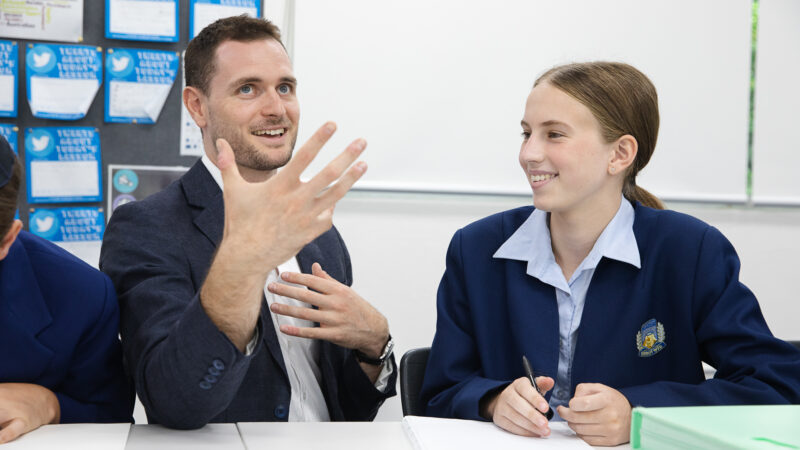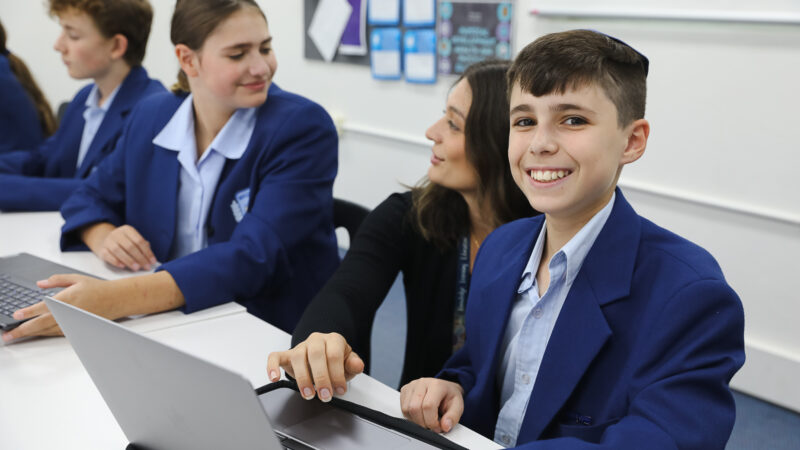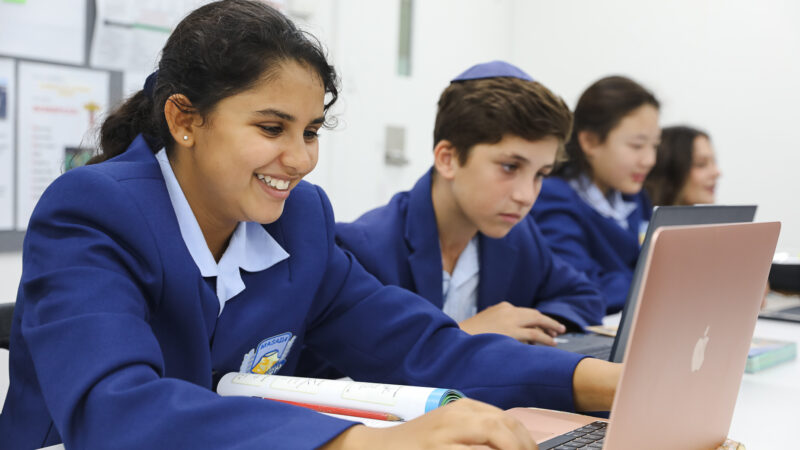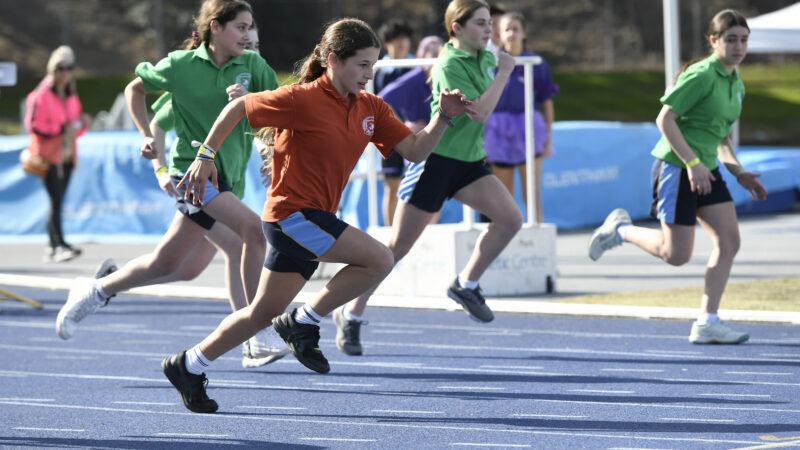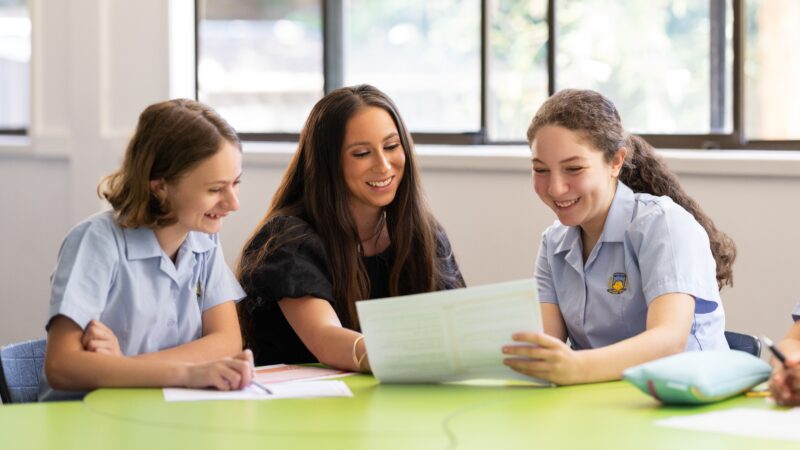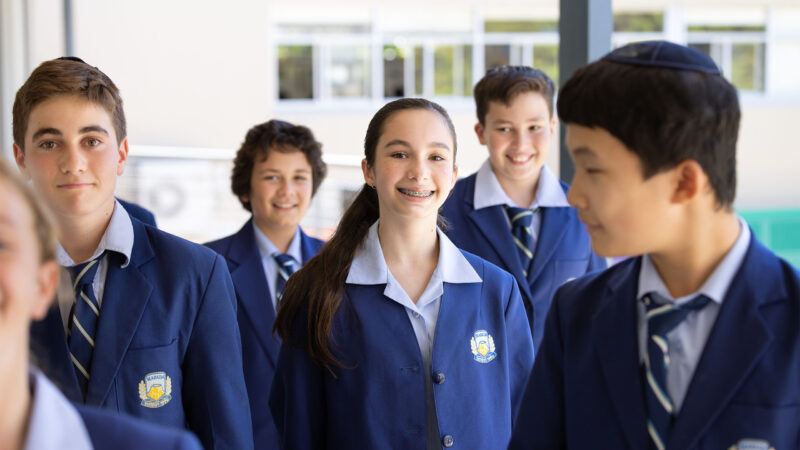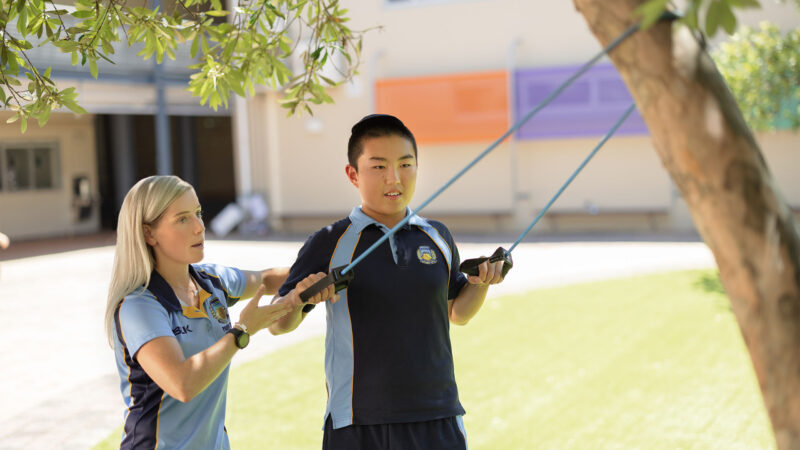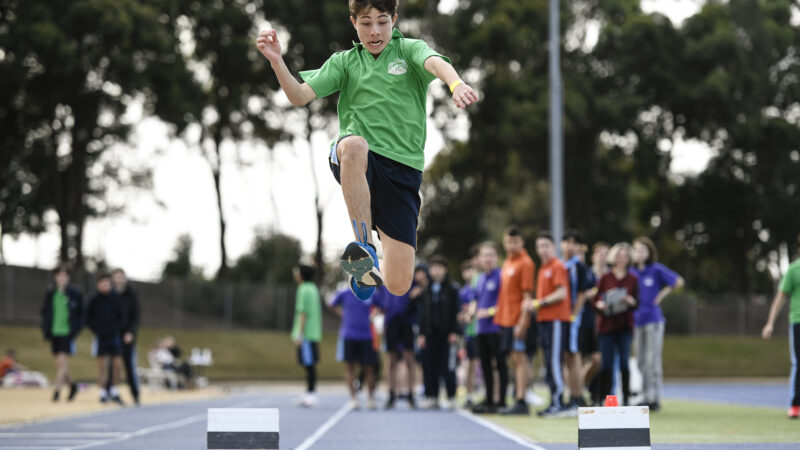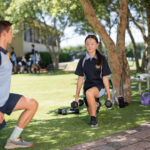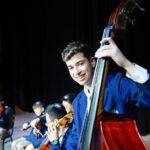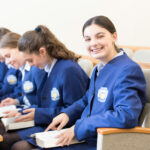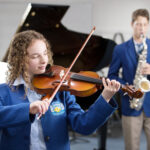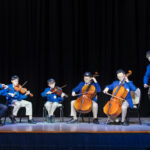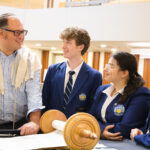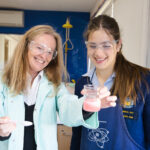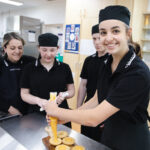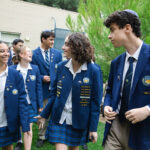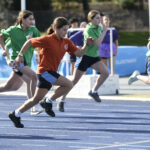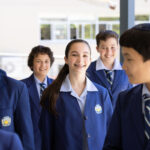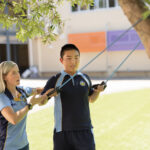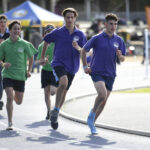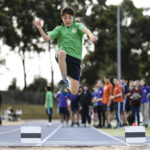Senior School
Overview
Our College raises responsible, individual thinkers with a strong sense of social justice and confidence in their ability to determine their own future. We work in close partnership with parents and teachers to maximise our students’ potentials. It is not surprising that our graduates win scholarships and awards and embark on a diverse range of career paths. Students from all backgrounds are welcome to our Jewish College which prides itself on inclusivity.
Our Unique Subject Offerings
These handy subject information pages provides extensive subject background knowledge. It is important to take a look and use it as a guide to help you unlock your own hive of potential for the HSC.

Curriculum
Years 7-10
Masada College Senior School follows the NESA’s guidelines with all students in Years 7-10 covering the required hours of study in the key learning areas:
- English
- Mathematics
- Science
- Creative Arts
- Technological and Applied Studies
- Personal Development, Health and Physical Education (PDHPE)
- Human Society and its Environment (HSIE)
- Language other than English
In Years 7-10, all students have a Jewish Life class component.
Years 9 & 10
In Years 9 and 10, students choose three electives from a range of subjects including:
- Hebrew
- Jewish Life
- Food Technology
- Design and Technology Workshop
- Commerce
- Physical Activity and Sports Studies (PASS)
- Mandarin
- Music
- Visual Arts
- Textiles Technology
- Drama
- iSTEM
- Big History
- Languages
Students in Year 9 study History pre-WWII and Year 10 students learn Holocaust Studies and Israel Studies.
We are introducing two new electives for Year 9 and 10 with iSTEM and Big History.
What is iSTEM?
iSTEM is an interdisciplinary subject incorporating electives such as mechatronics, aerodynamics, engineering, 3D CAD/CAM, aerospace and motion modules. iSTEM presents topics to students in ways that challenge not only their understanding of these subjects but also their ability to manage projects and work in teams. This elective subject provides students with curriculum to support the most up- to- date technologies. It engages students in problem- based learning and involves them in real ‘on-the-job’ situations. This facilitates students to better engage in science, technology, engineering and mathematics and is designed to challenge and excite students with the possibilities of the future. It involves many 21st century learning opportunities and emphasises inquiry-based learning where students are encouraged to learn by doing.
Years 11 & 12
The subjects offered in Years 11 and 12 vary according to the interests and strengths of each cohort. All students must study English (either Advanced, Standard or ESL) and then choose courses, which can include:
- Hebrew (Modern and/or Classical)
- Mathematics (all levels)
- Chemistry
- Physics
- Biology
- Modern History
- Ancient History
- Society and Culture
- Studies of Religion
- Business Studies
- Economics
- Geography
- Extension courses
- Hospitality (Food and Beverage)
- Food Technology
- Design and Technology
- Music
- Visual Arts
- Personal Development, Health and Physical Education (PDHPE)
- Chinese and Literature
The Year 11 preliminary course subjects are prerequisites for the HSC courses in those subjects. Masada advises students to study 13 or 14 units in Year 11 (two more than NESA’s minimum) and 11 or 12 units for the HSC year. In Year 11 and 12, all students also attend weekly Issues and Ethics classes.
Students are provided with alternative paths for subjects they may wish to study which fall outside of those offered.
We offer a wide range of subjects and our students continue to achieve exceptional results, demonstrating a strong commitment to the pursuit of learning and personal self-development.
Our goal at Masada College is to provide a learning environment which values:
- Integrated approaches to teaching and learning;
- Use of project and problem- based learning as well as inquiry- based learning pedagogies;
- An emphasis on enterprise skills such as complex problem solving, teamwork, communication, negotiation and creativity;
- More connected real-world learning, including industry contextualisation;
- Team teaching and research- based approaches to teaching and learning.
Relevance to further study
The importance of STEM disciplines for the future economic and social well-being of Australia cannot be underestimated. International research indicates that 75 percent of the fastest growing occupations require STEM skills and knowledge. In the USA, STEM employment grew three times more than non-STEM employment over the past twelve years and is expected to grow twice as fast by 2018.
The importance of STEM subjects to Australia is indisputable. Future employment opportunities for our students will be enhanced with STEM based knowledge. In 2012, Ian Chubb, Chief Scientist of Australia triggered a major focus on the decline of interest in STEM studies across the nation and its potential impact on our future. To this end we are excited to be able to offer this opportunity to our students.
HSC Results
Co-Curricular
Charity committee and Chesed program
Dance
Debating
Mock trials
Music
Tech crew
Da Vinci Decathlon
Public speaking
Duke of Edinburgh
Camp Sababa
Fitness
Futsal
Cricket
Basketball
Table Tennis
Volleyball
Badminton
Softball
Squash
Athletics
Football
Rugby
Netball
Oz Tag
Extra-Curricular
- Tennis
- Fitness
- Futsal
- Cricket
- Basketball
- Softball
- Squash
- Athletics
- Football
- Rugby
- Netball
- Oz Tag
Gallery
or Tour


